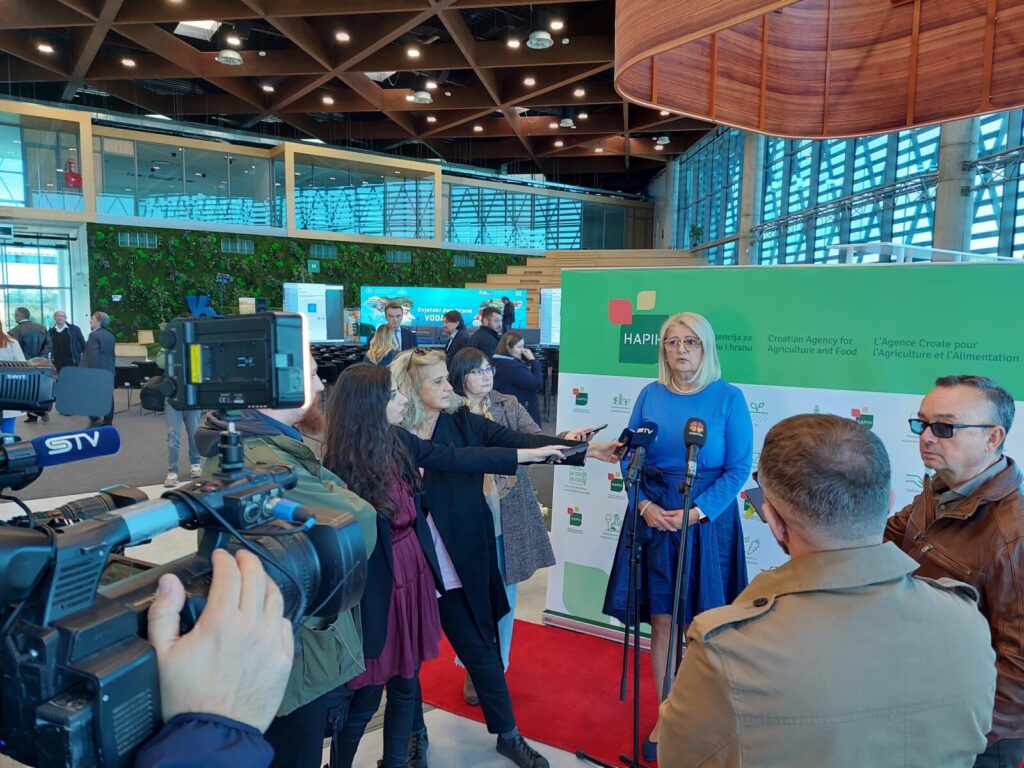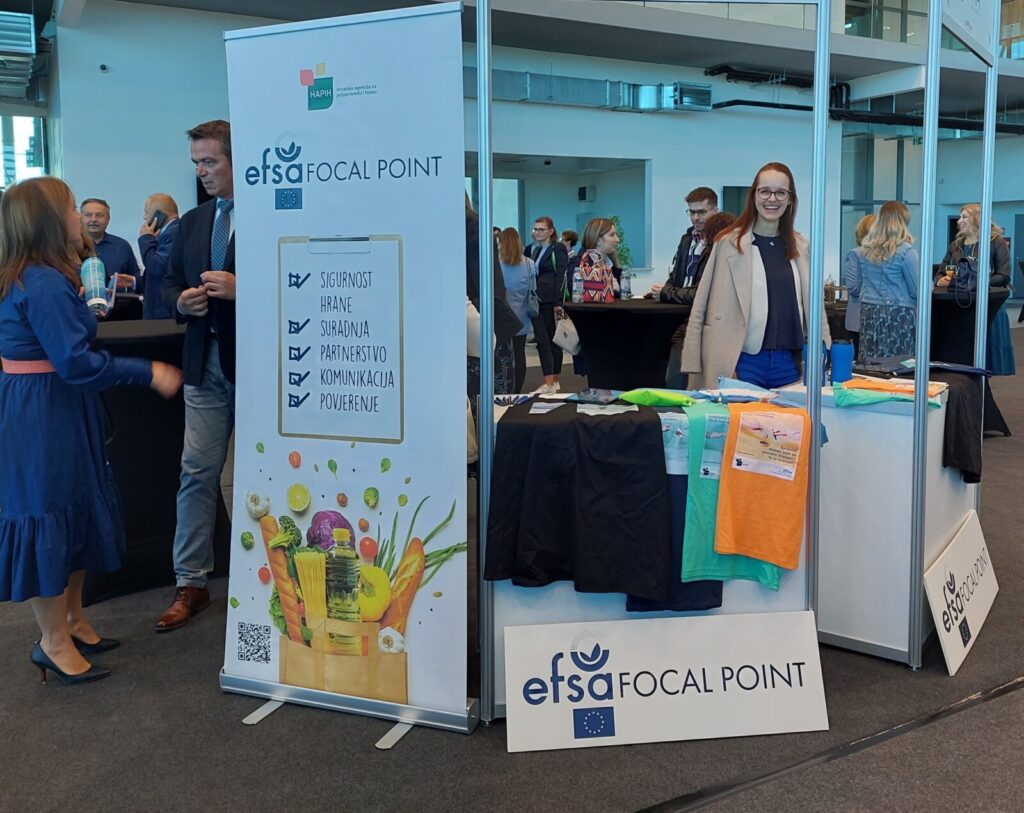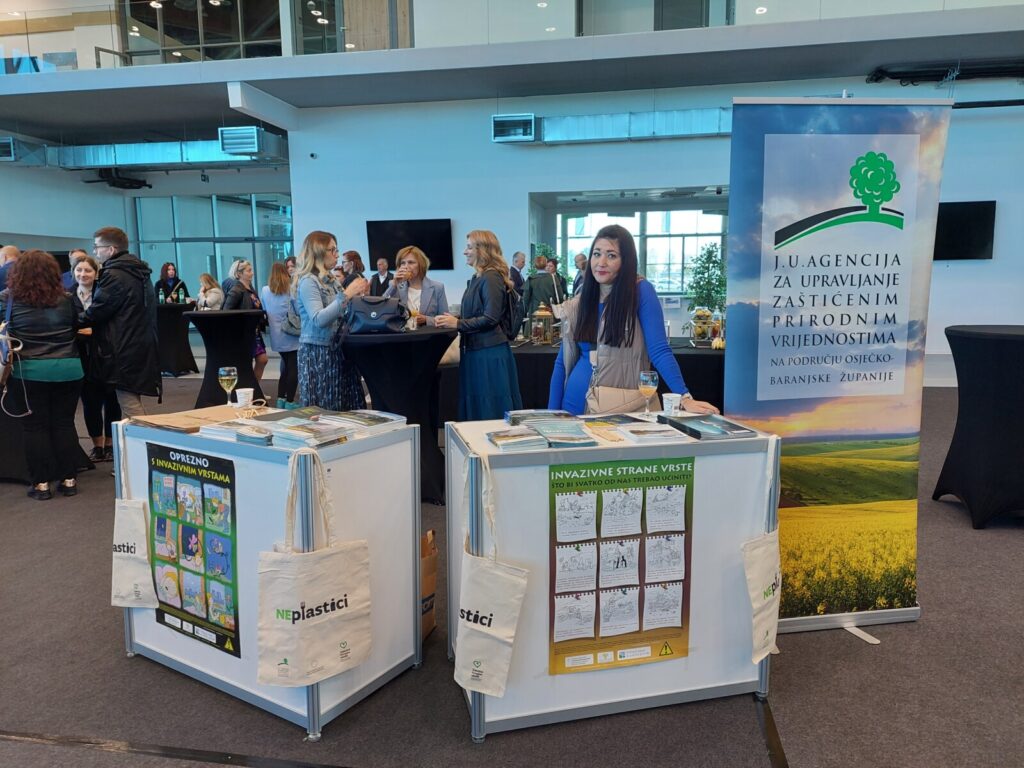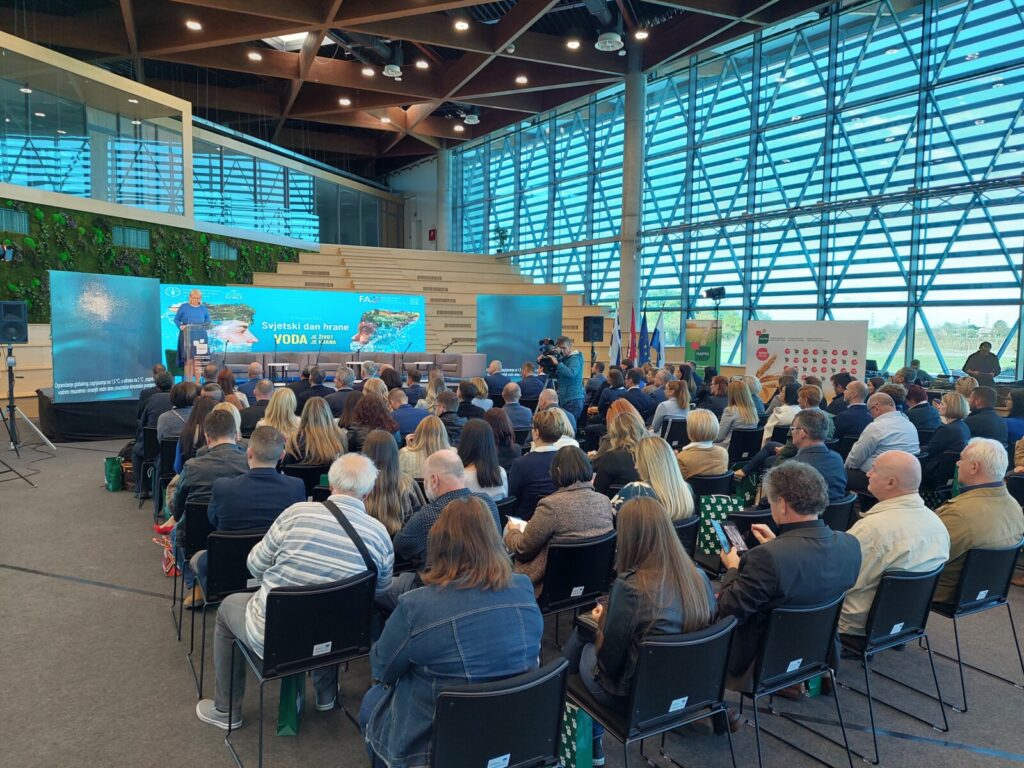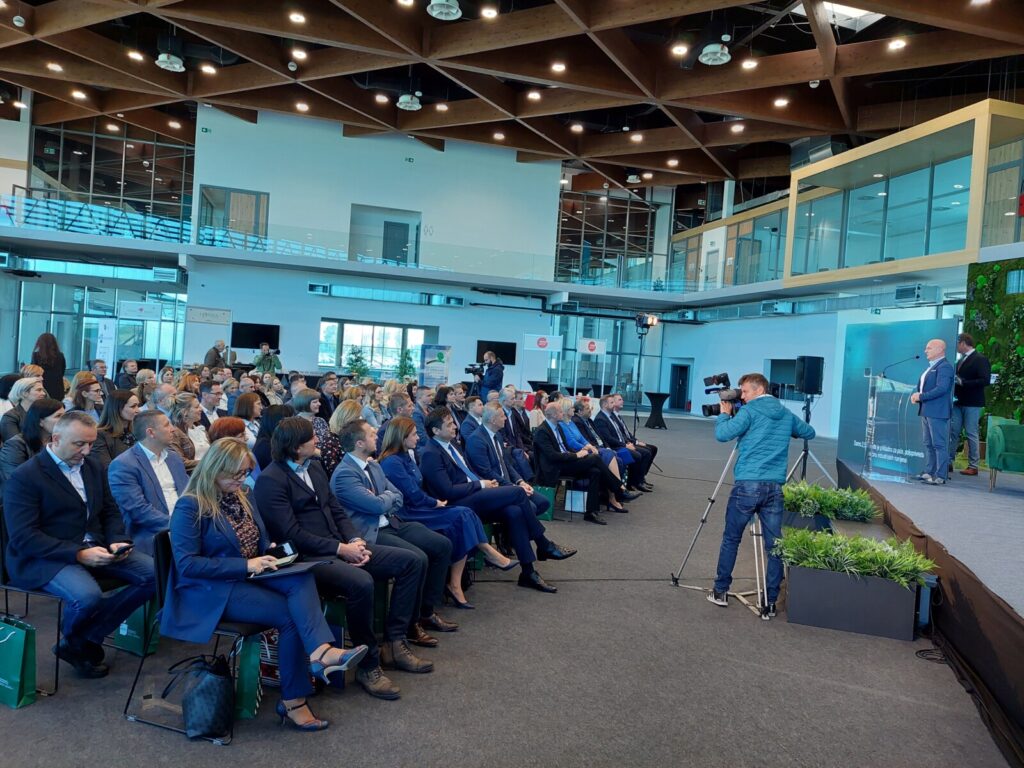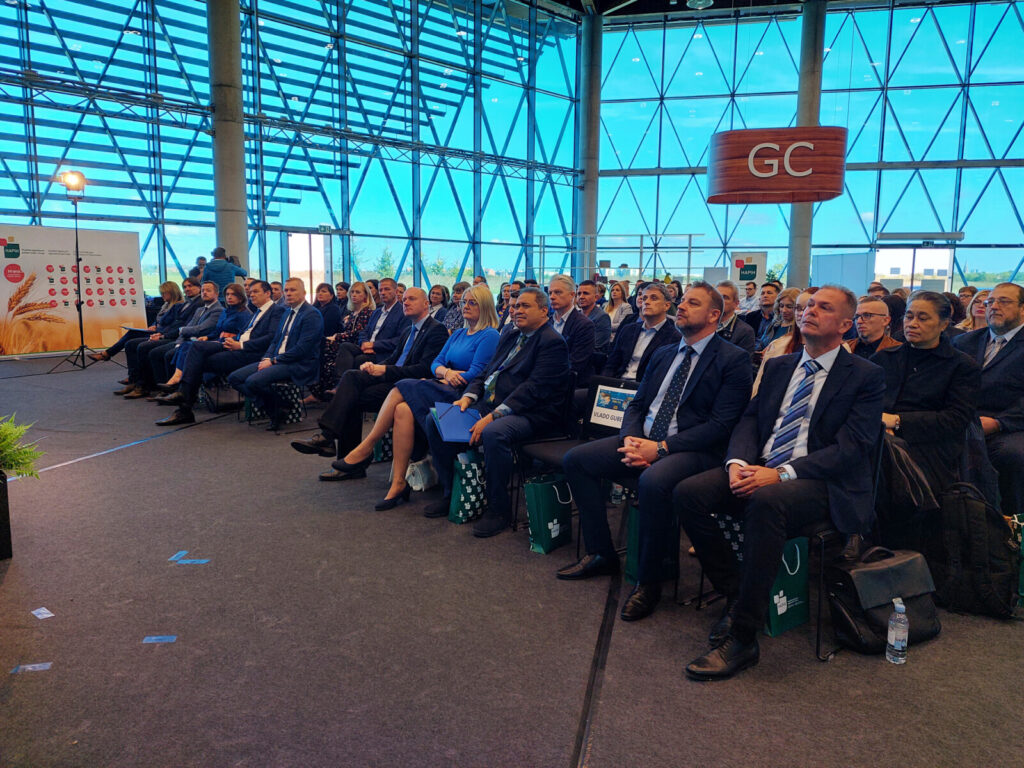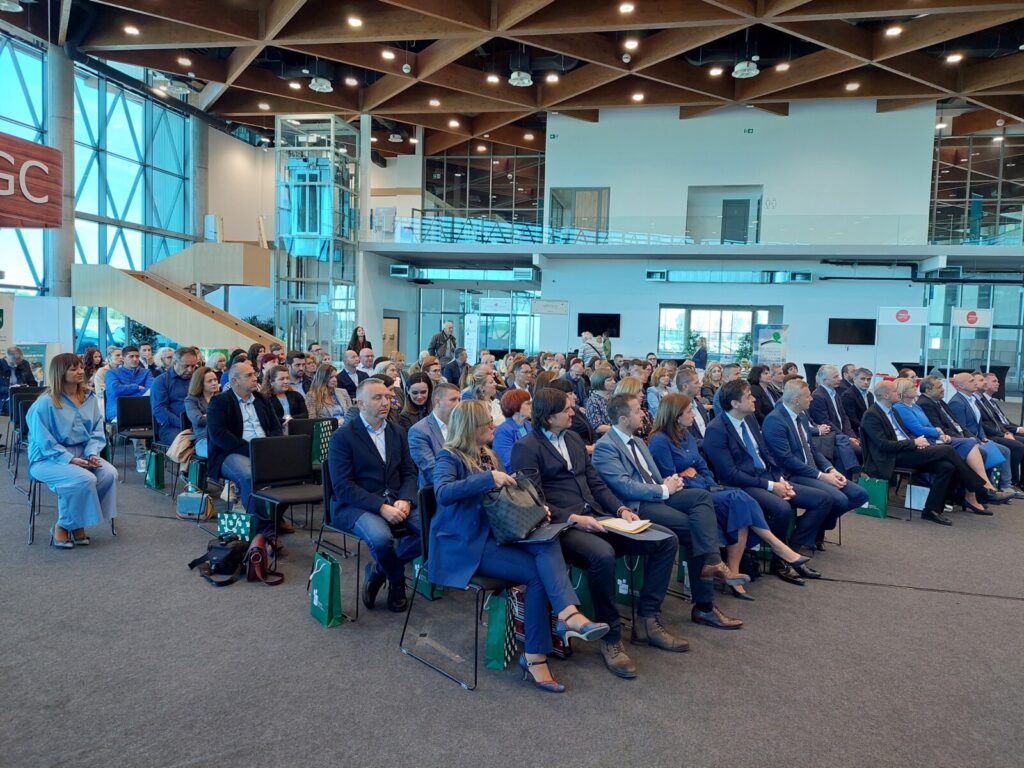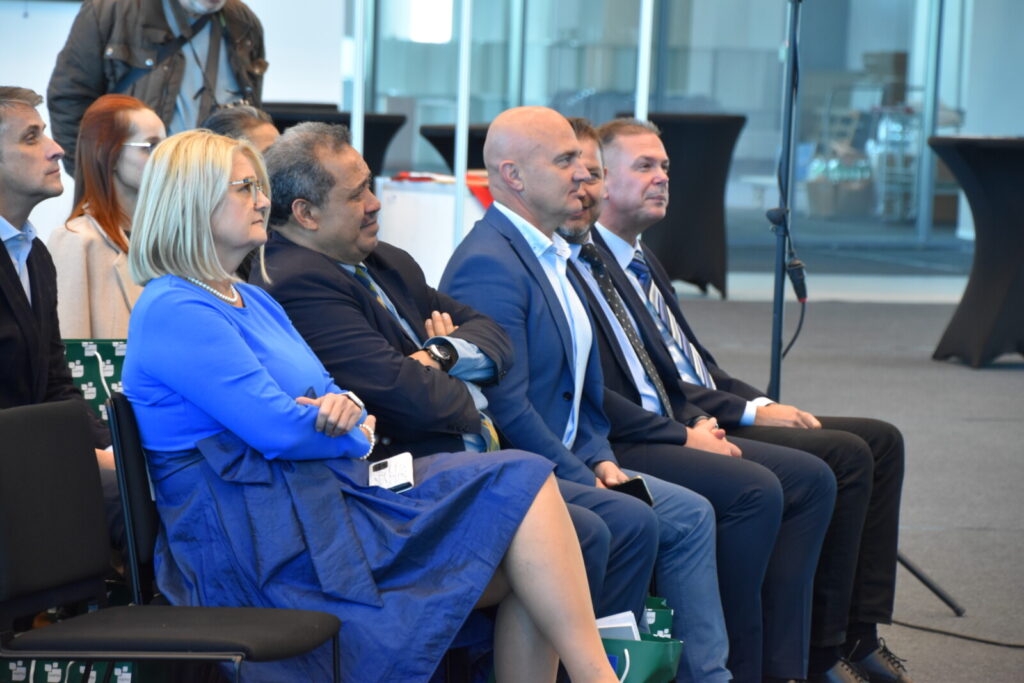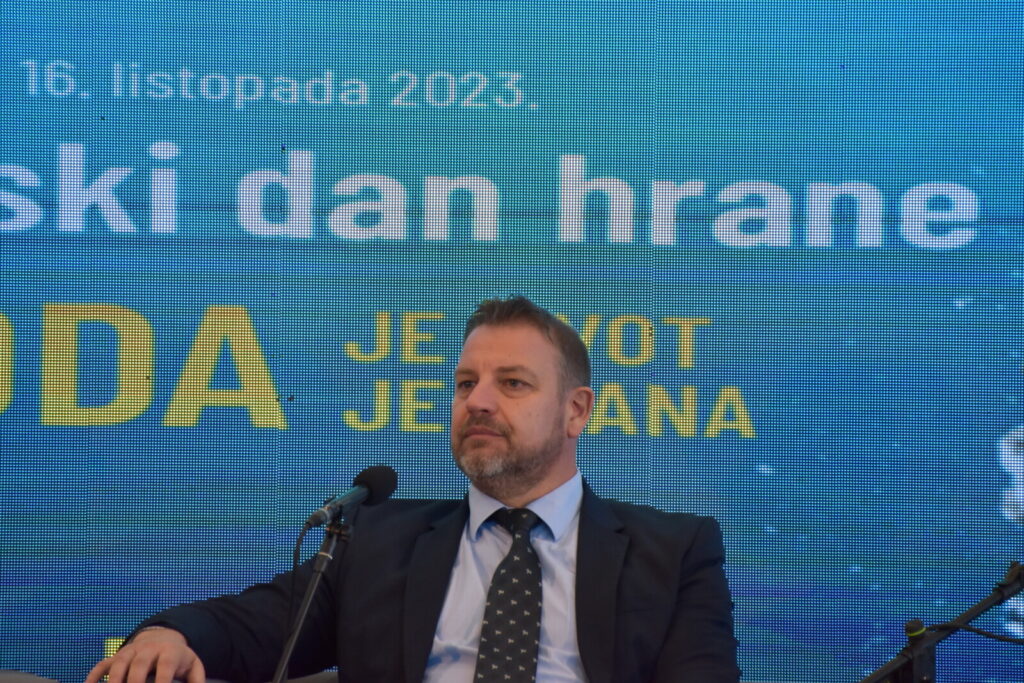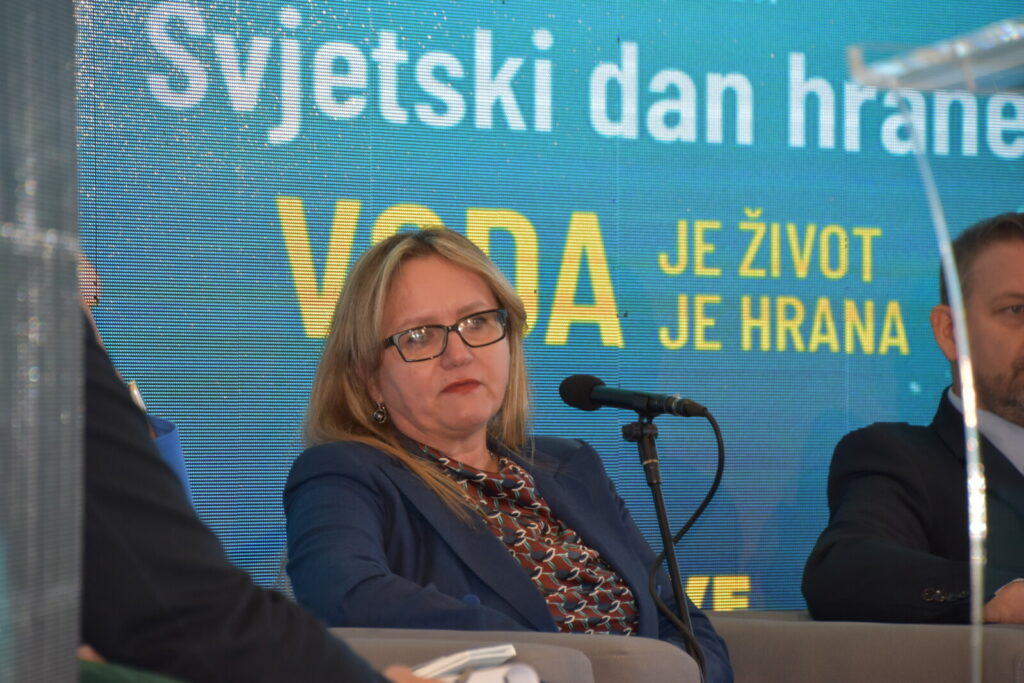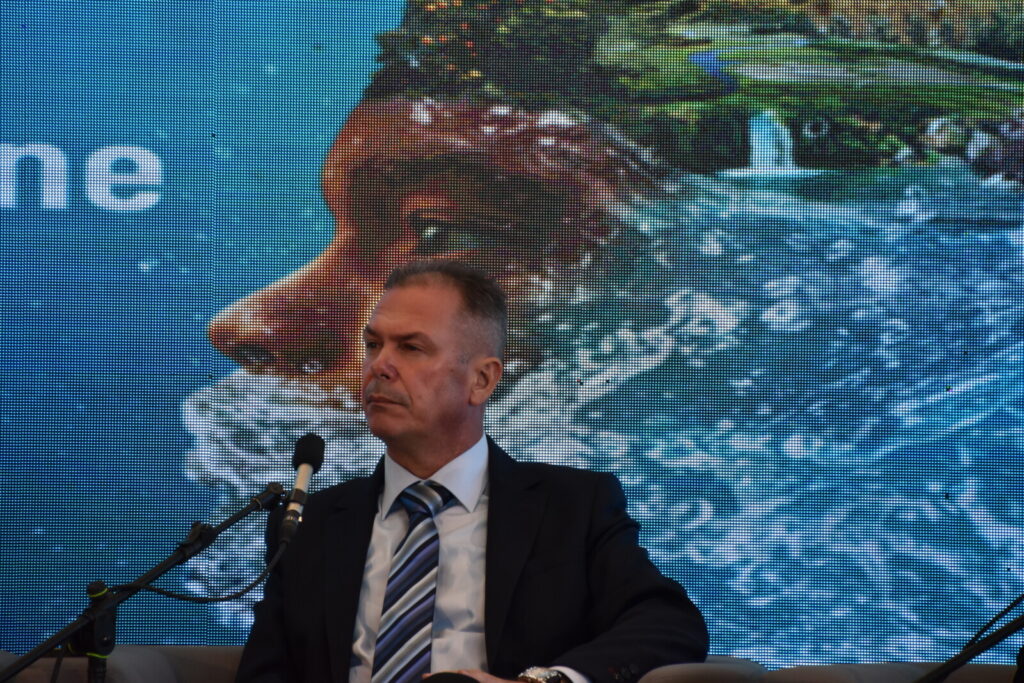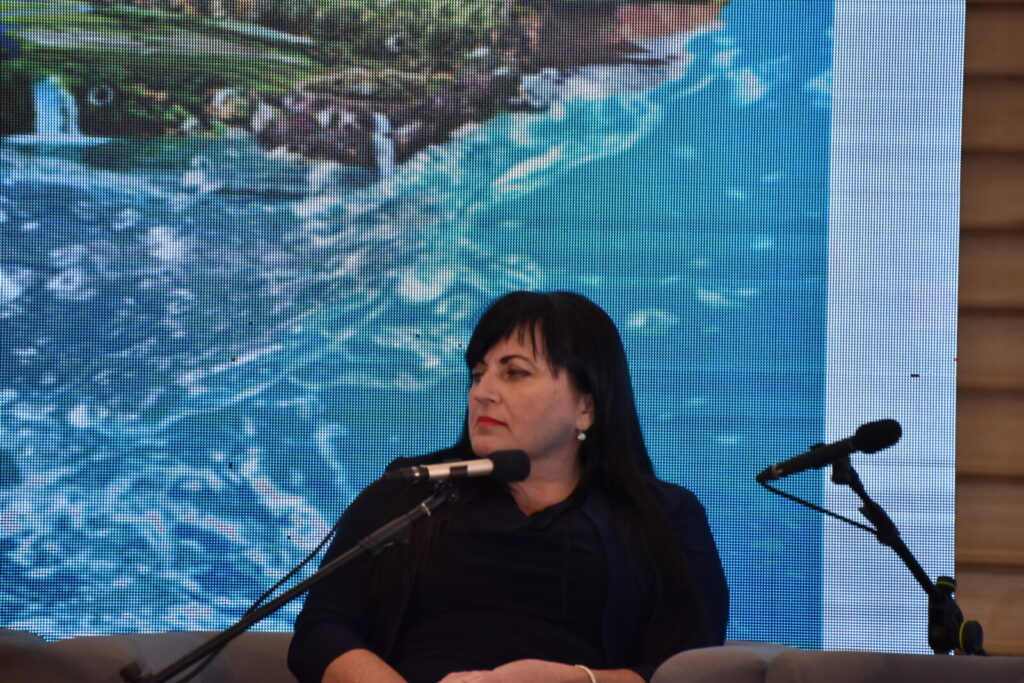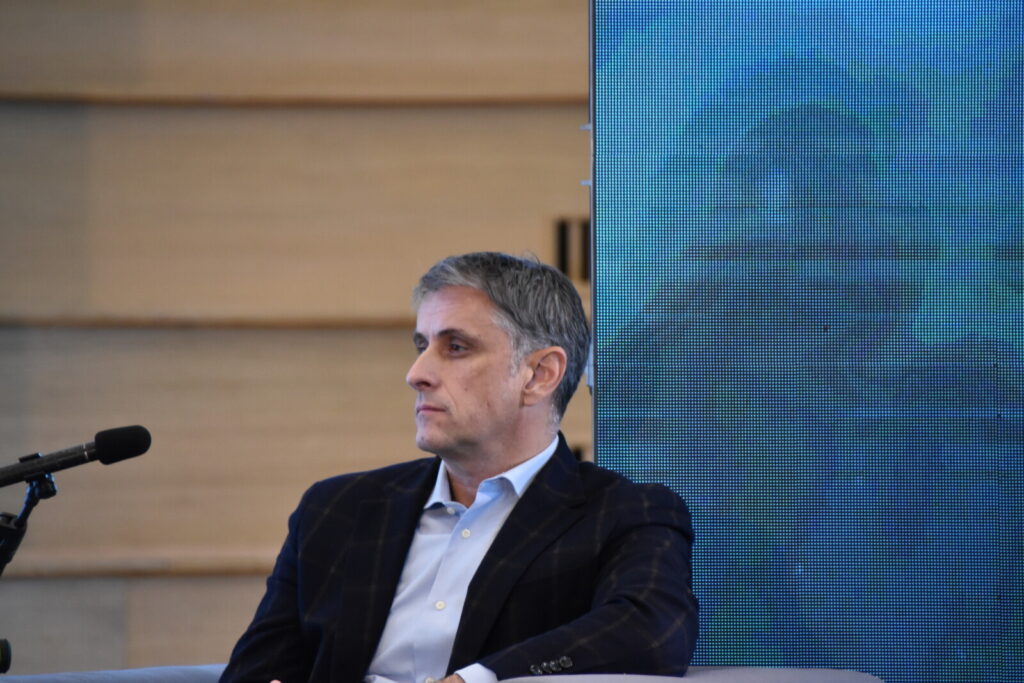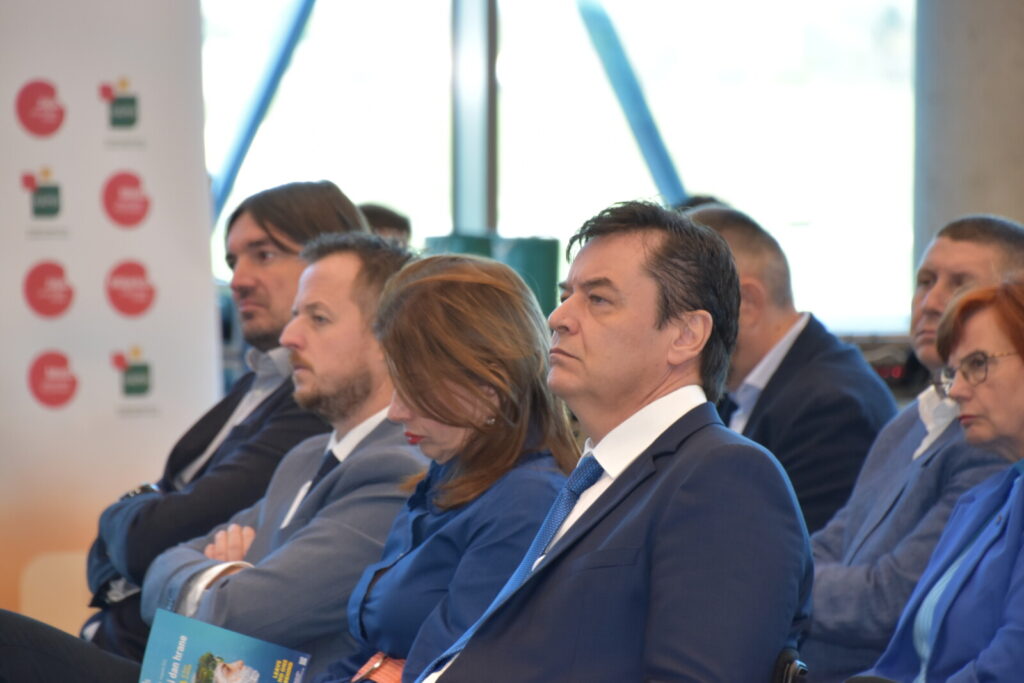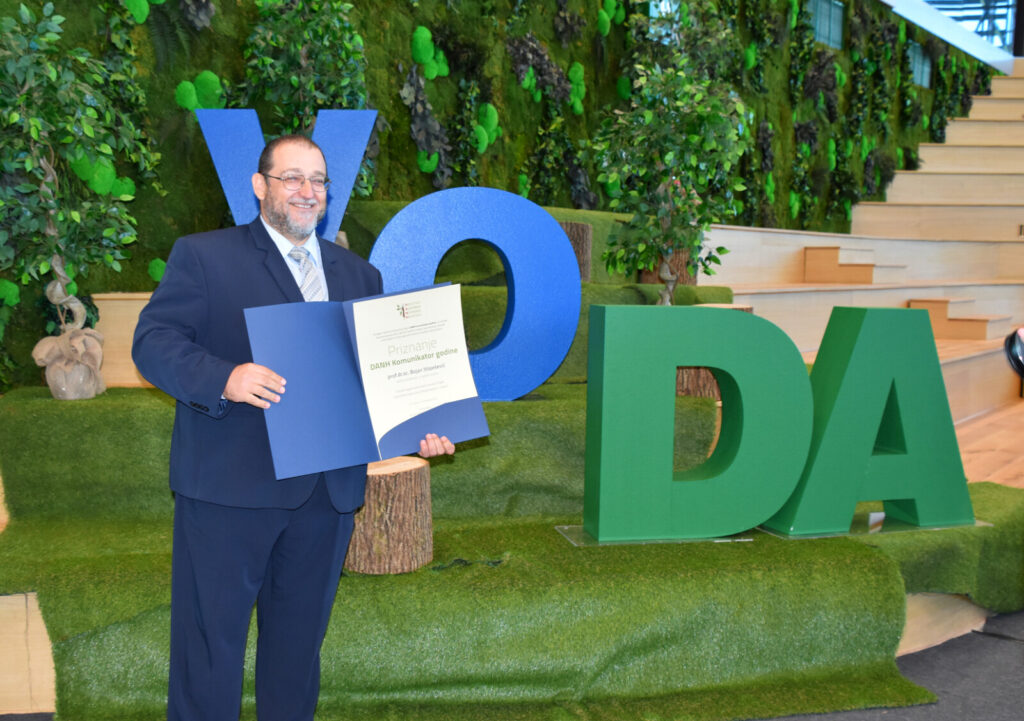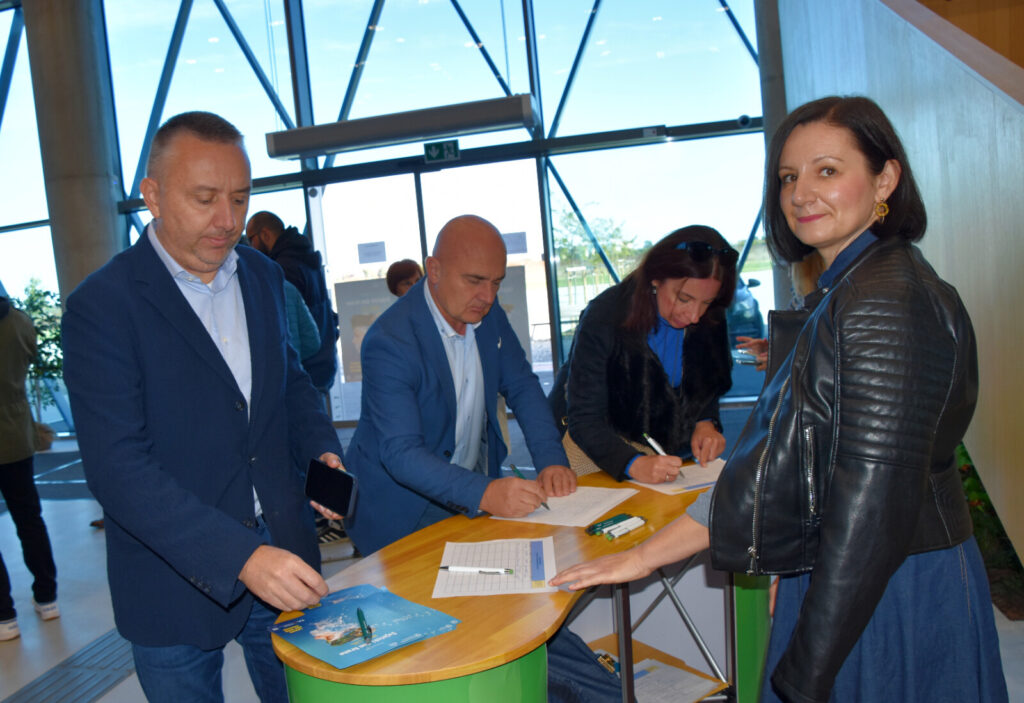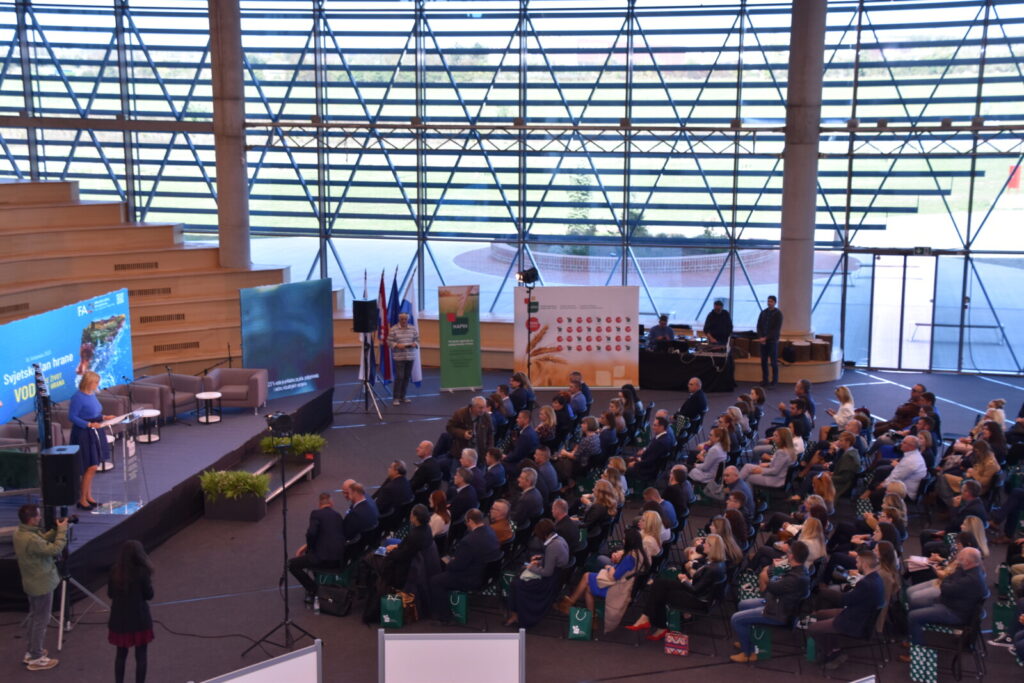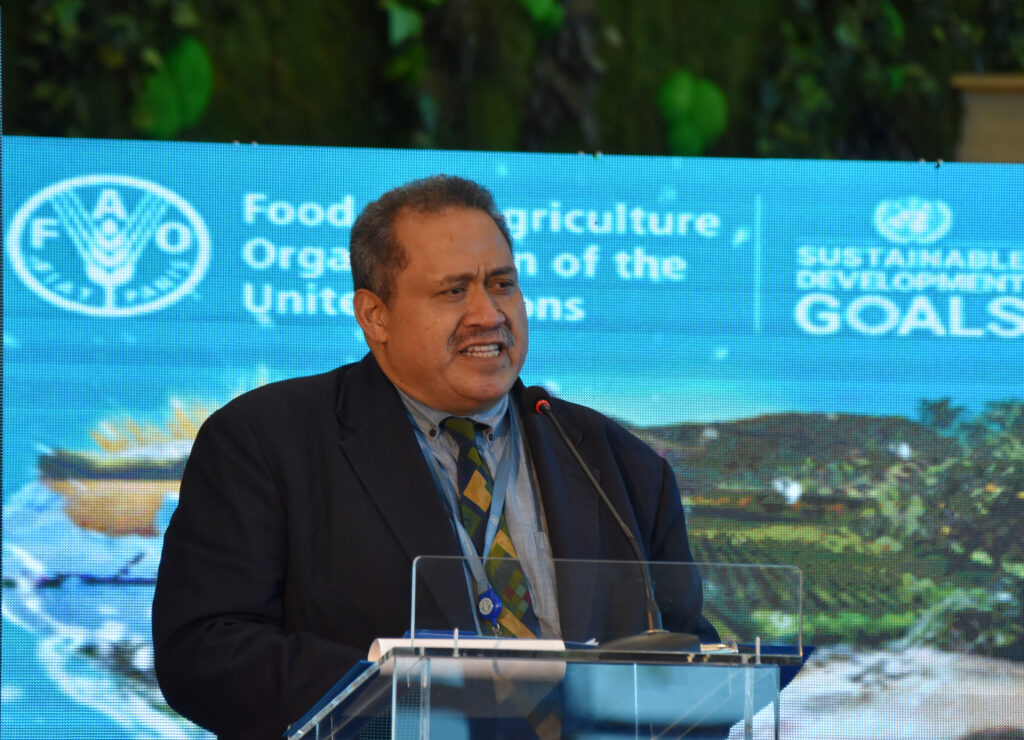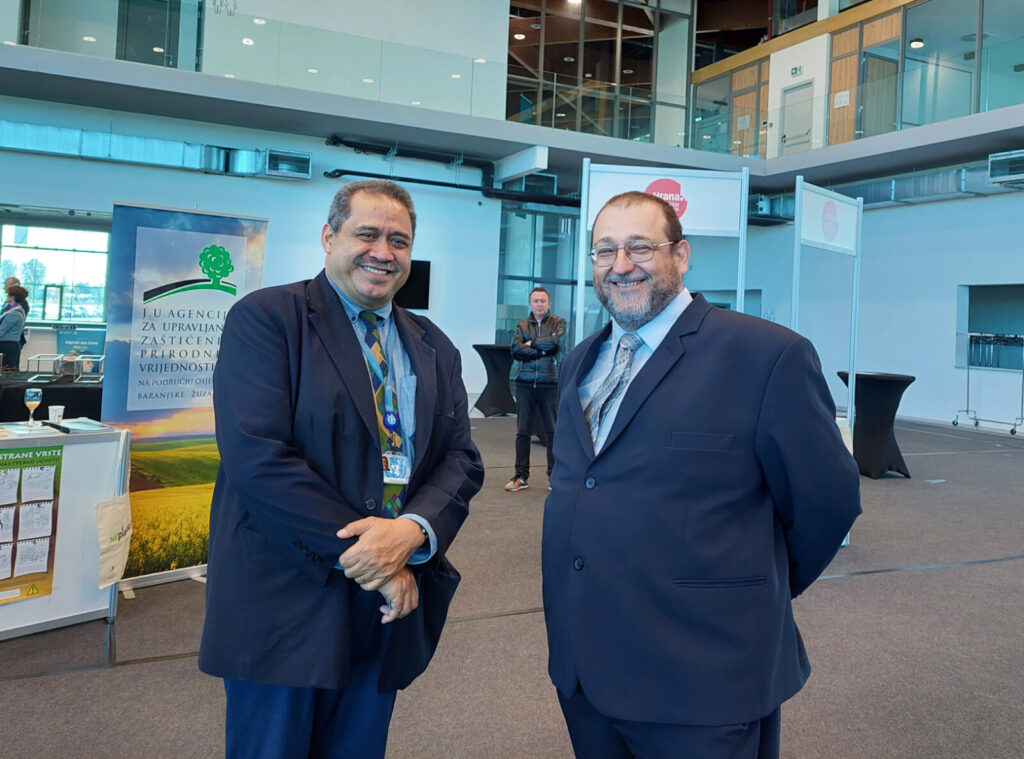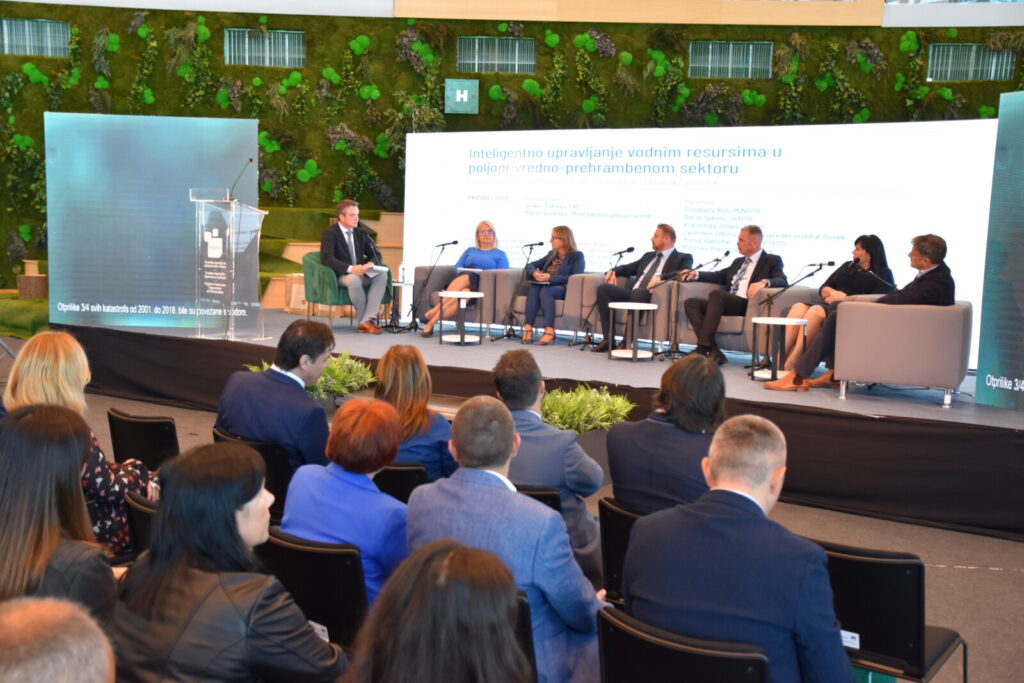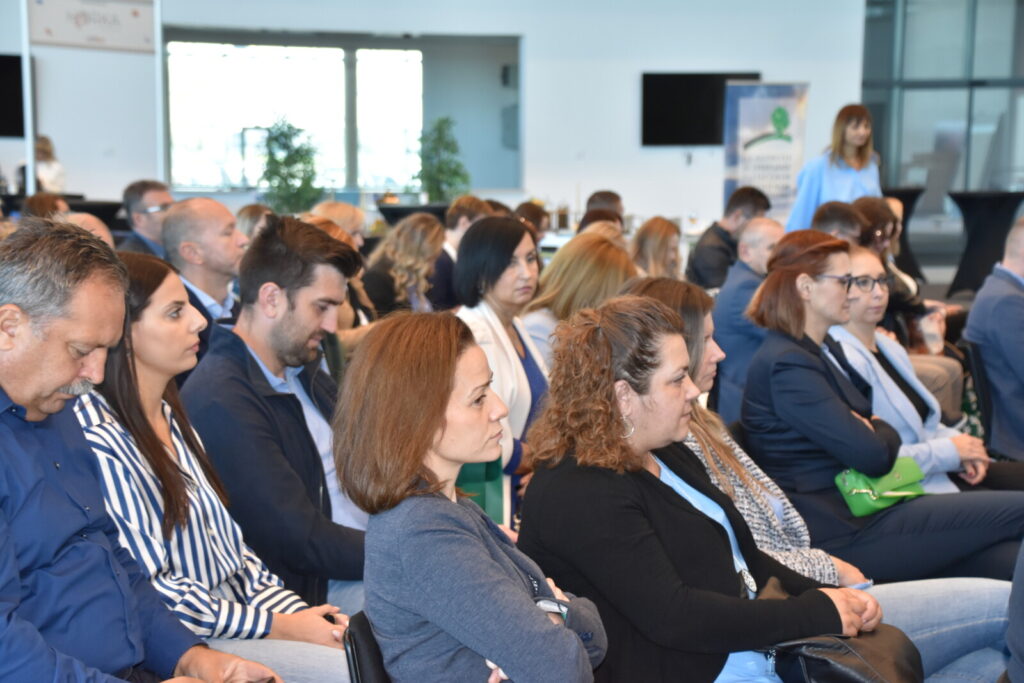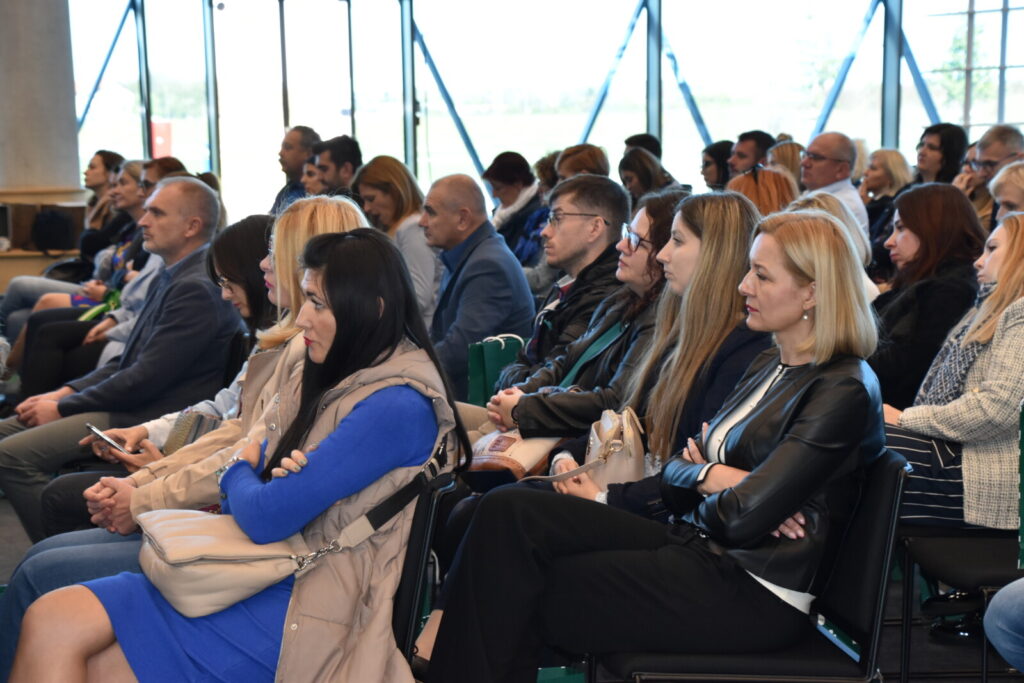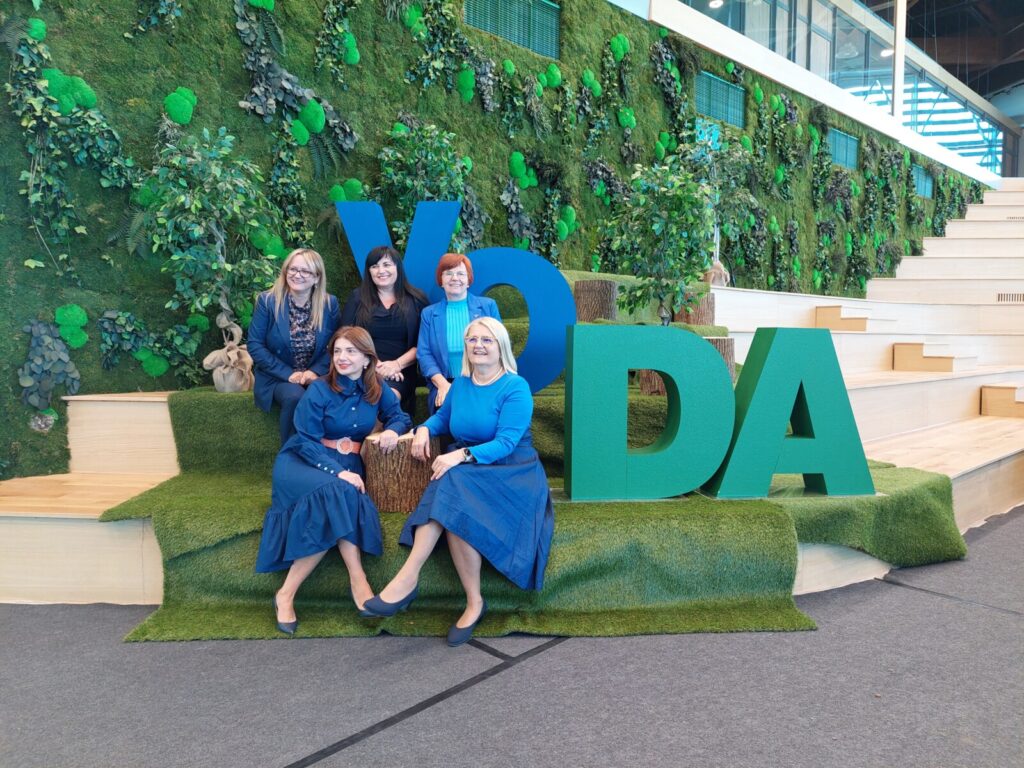Water, as an essential natural resource, is unfortunately not infinite. Therefore, intelligent and rational management of water resources is imperative for a sustainable future and the survival of life on the planet as a whole. This was emphasized during the national observance of World Food Day on October 16. The event, held at the Business Centre of Osijek Baranja County in Osijek, was organized by the Croatian Agency for Agriculture and Food (HAPIH) under the patronage of the Ministry of Agriculture, with the support of the United Nations Food and Agriculture Organization (FAO) and the Focal Point of the European Food Safety Authority (EFSA).
FAO placed a special focus on water in the contemplation of this year’s World Food Day, which is observed in 150 countries worldwide. Hence, the central theme of this gathering was “Water is Life, Water is Food.”
Welcoming the participants on behalf of the organizers, Assoc. Prof. Dr Darja Sokolić, the director of HAPIH, highlighted Croatia’s strong standing in terms of water resources, particularly high-quality drinking water and water for food production, in global and European contexts.
“It is extremely important to sustain these resources by constantly contemplating their rational use. This day serves as a call for everyone to think about water usage, both on a personal level and in the professions they engage in, with the aim of preserving it for future generations,” Director Sokolić stated in her opening remarks.
Necessity of Better Water Source Protection
Viliami Fakava, the representative of the FAO Regional Office for Europe and Central Asia, addressed the participants. He reminded everyone that World Food Day has been observed since 1979 to raise awareness about sustainable food production systems. In the FAO calendar, March 22nd is also notably dedicated to water. However, this year is special because World Food Day has brought water into focus to highlight the essential need for better protection of vital water sources we have.
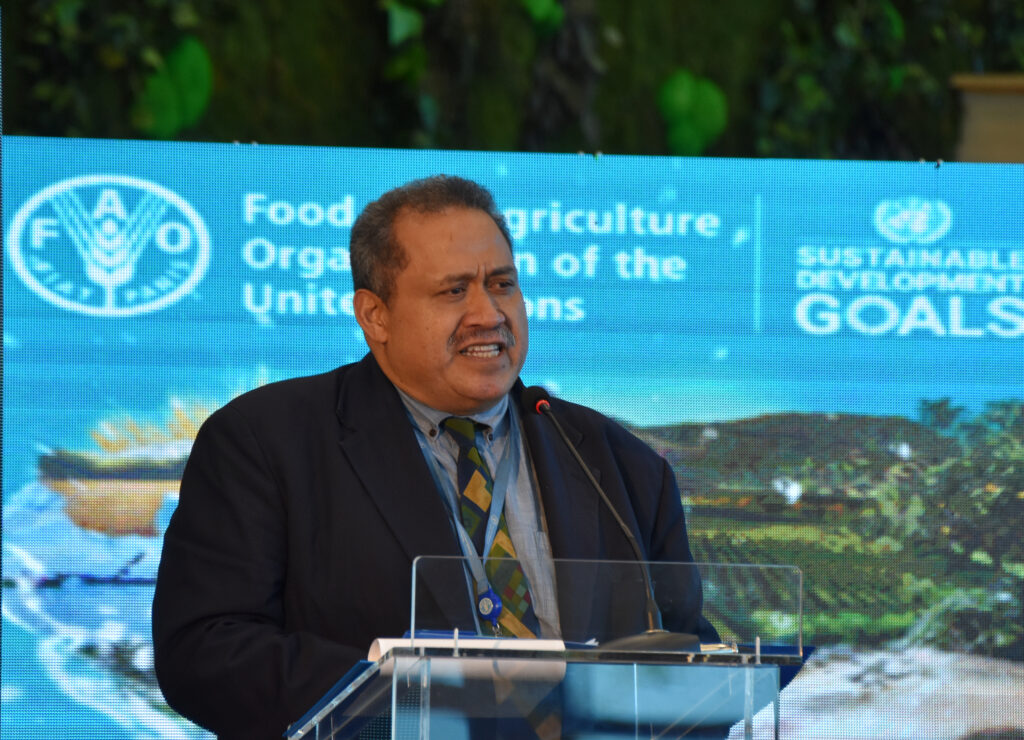
“Water is crucial in agriculture, as well as in other sectors of the economy. Our biggest challenge now is the global increase in population and climate change, along with the fact that 2.4 billion people live in countries with water scarcity. Agriculture accounts for 70 percent of water consumption, making it the largest consumer of water for FAO. We expect global water demand in agriculture to increase by 35 percent by 2050. Our main task is to ensure sufficient water supplies for agriculture while simultaneously meeting the water needs in other economic activities,” Fakava stated, concluding that every country has its own challenges, but sustainable water management is a shared imperative. This requires coordinating policies, developing systems, and promoting new technologies in irrigation, as well as investing in infrastructure for responsible water management, including systems for wastewater use.
“Access to clean water is not only essential for survival but also plays a vital role in ensuring sustainable production of safe food for all. Water is a key element for better agricultural production, for better nutrition, a better environment, and a better life for all. Let this World Food Day remind us that we must use our water wisely,” Fakava concluded. The central part of this event was a panel discussion titled ‘Intelligent Management of Water Resources in the Agricultural-Food Sector,’ moderated by Davor Lončarić, editor at HRT Radio Osijek. Participants were Assoc. Prof. Dr Darja Sokolić, the director of HAPIH, Elizabeta Kos, the director of the Water Management and Protection Administration at the Ministry of Economy and Sustainable Development, Prof. Dr Krunoslav Zmaić, the dean of the Faculty of Agrobiotechnical Sciences in Osijek, Prof. Dr Zvonimir Zdunić, the director of the Agricultural Institute in Osijek, Prof. Dr Mirna Habuda-Stanić, a full professor at the Faculty of Food Technology in Osijek, and Marinko Pleština, a member of the Jamnica Management Board.
Rational Water Management
Assoc. Prof. Dr Darja Sokolić illustrated water consumption with data, explaining that it takes 18,900 litres of water to produce one kilogram of coffee, 200 litres for one kilogram of tomatoes, 2,400 litres for a hamburger, and 1,608 litres for one kilogram of bread.
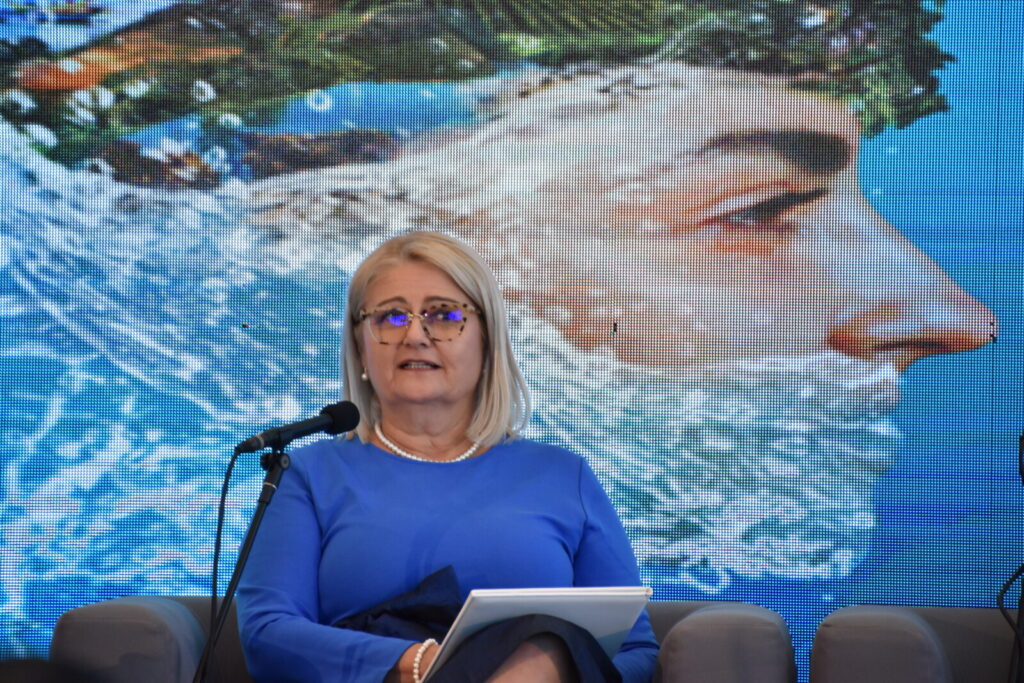
“Given this, we must take care of water consumption in all segments of the agri-food system. New technologies should focus on rational water use. One of the conclusions of the Summit in Rome this summer was that our agri-food system are unsustainable, and water, along with soil, is one of the key resources that we must contemplate about,” Director Sokolić said. She added that HAPIH is involved in water protection activities, especially in implementing the Nitrate Directive through the Centre for Soil.
In conclusion, she emphasized the need to consume sufficient amounts of water since our water is of high quality. However, it’s important to use water wisely for all other needs. Regarding dietary habits, she highlighted the latest results of national research on the dietary habits of infants and children up to nine years old, who consume an average of 4-5 decilitres of water daily, not including other beverages. Croatians consume the most water compared to all EU members, which is likely influenced by the “small phenomenon” that Croatians drink large amounts of coffee, usually served with a glass of water.
Croatia Leads Europe in Water Quantity per Capita
Elizabeta Kos emphasized that Croatia is leading in Europe in terms of water quantity per capita. According to EUROSTAT data updated in August of this year, Croatia has approximately 30,000 cubic meters of water per capita, significantly ahead of Finland, Sweden, and Lithuania. “Regarding reserves, as outlined in the Water Management Area Management Plan adopted this year, up until 2027, the total available water resources amount to 22,163,000,000 cubic meters annually. However, spatially and temporally, water distribution is uneven, especially during dry periods. Croatia is quite susceptible to weather disasters, ranking as one of the three most vulnerable countries in the European Union, alongside Hungary and the Czech Republic,” explained Kos. She pointed out that droughts occur approximately every four years, resulting in substantial damages over the past two decades, totalling around two billion euros annually.
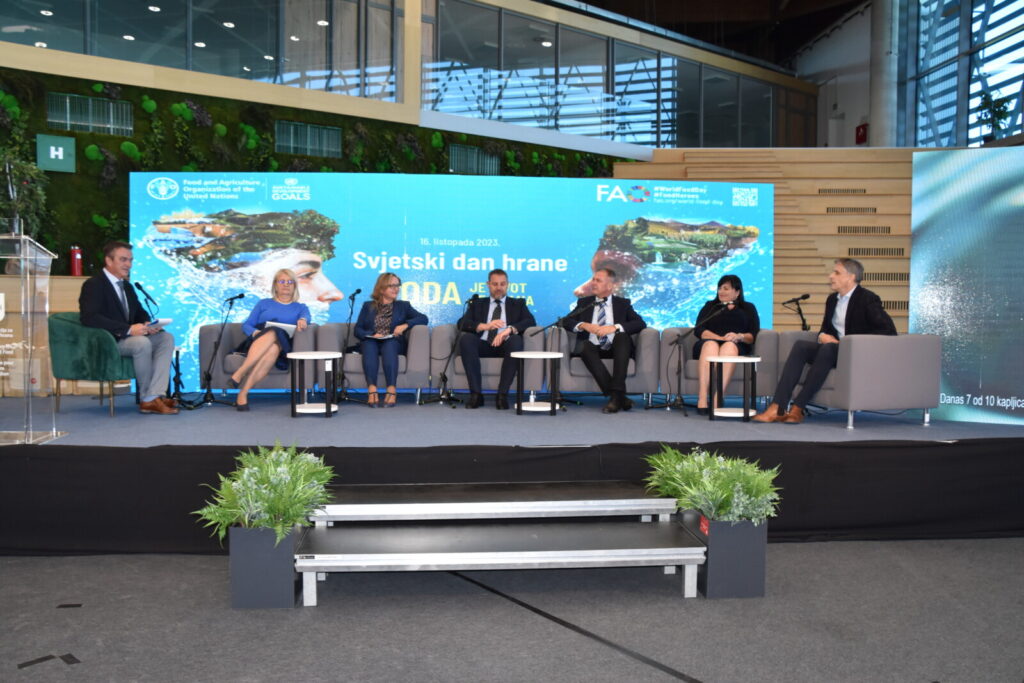
“We are striving to combat this by building irrigation systems, of which we have 28 in Croatia covering 21,000 hectares. In the budget period 2014-2020, we had 107 million euros available from European funds for the construction of irrigation systems, and through the rural development program, we built 17 of the mentioned 28 systems. Among the five Slavonian counties, Osijek-Baranja County leads in terms of the built public irrigation systems and also has prepared projects for the next financial period. Unfortunately, agricultural production is the most vulnerable to climate change, and with a noticeable increase in temperatures and occasional excessive rainfall, which is also not beneficial, systematic work is necessary both in terms of irrigation and drainage on agricultural plots,” concluded Kos. She reminded that the plan envisaged irrigation of 65,000 hectares, or 6.5 percent of arable agricultural land, but to date, 65-66 locations have been elaborated, covering more than 41,000 hectares for which some kind of plans or project documentation has been prepared.
In further action, the goal is to reduce losses in the public water supply system and emphasize water protection, which is still insufficient, as only 44% of wastewater is adequately treated. “We are trying to change this by building secondary wastewater treatment facilities. Furthermore, in irrigation, we are focused on the development of controlled irrigation, the use of fertilizers, and protective agents. In the foreseeable future, there will also be a regulation on the reuse of water when we do not have sufficient quantities, but with caution… all of this would be intelligent water management in the context of green and digital transition towards the European Green Deal,” concluded Kos.
We will use more water in production
Prof. Dr Krunoslav Zmaić believes that water is a significant asset for Croatia, yet it is not being harnessed to its full potential.
“Collectively, we need to develop a unified model for transitioning our agricultural producers from what can be conditionally labelled as capital-intensive to labour-intensive production,” Zmaić concluded. He emphasized once again that Croatia holds substantial potential in irrigating surfaces, underscoring that land reclamation, as one of the technical measures, encompasses not only irrigation but also drainage. Excessive water poses a significant challenge in agricultural production, particularly in cases of heavy rainfall or floods. “Our scientists and researchers, through their projects and endeavours, are uncovering solutions to all these challenges. Among other initiatives, at our innovation and technology transfer testing ground in collaboration with the Ministry of Agriculture, we will launch a competition this autumn focused on irrigating one hectare of land for further research. This will enable farmers to recommend suitable varieties,” announced Dean Zmaić.
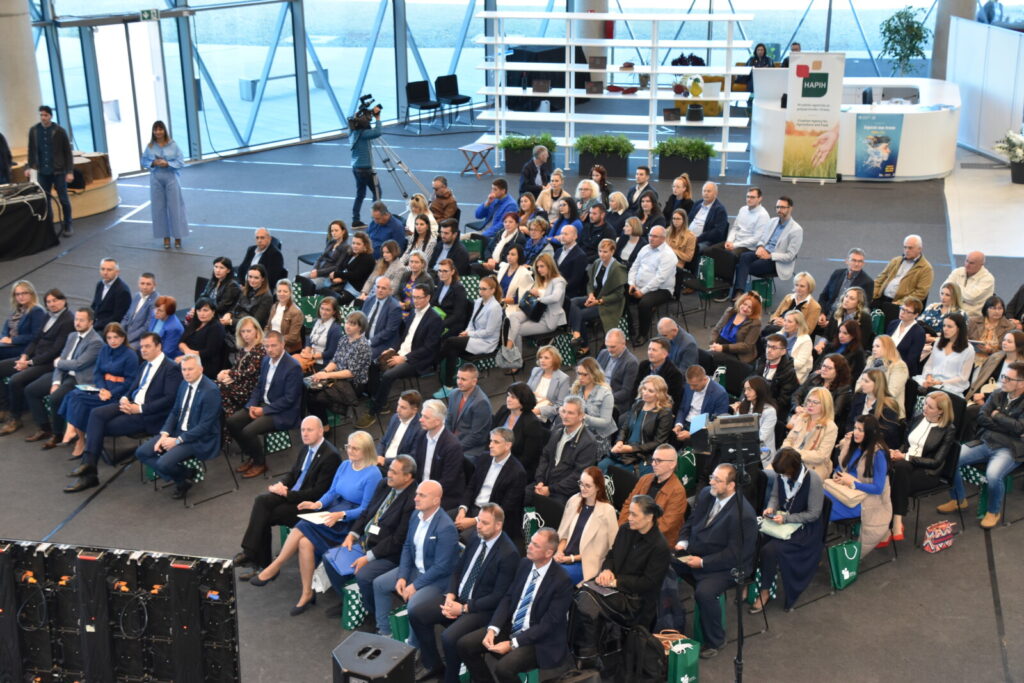
Prof. Dr Zvonimir Zdunić emphasized that it is impossible to imagine modern agricultural production, especially seed production, without additional amounts of water, and this is increasingly true for mercantile crops as well. When discussing strategic arable crops, he illustrated that in a dry year, it takes 60,000 cubic meters of water to produce 50 hectares of corn. Therefore, at the Osijek Institute, they have constructed seven wells in collaboration with the Osijek-Baranja County, with a water flow of 120,000 litres per second, which will cater to their seed production on 250 hectares.
“We will use more water in production. For two reasons. First, to ensure an adequate amount of quality and safe food, and second, to ensure the economy of production volume so that the total cost can be distributed to a much larger number of product units, making this quality and safe food available to a wider audience of our consumers,” concluded Prof. Dr Zdunić.
We drink quality water
Prof. Dr Mirna Habuda-Stanić underscored the high quality of drinking water, which undergoes multiple daily checks, as well as the springs themselves. New technologies are already ahead of European ones in detecting some undesirable elements in water, and in addition to ensuring chemical safety, microbiological safety of water must also be monitored.
“I am sure that we are moving towards smart water management. The European Green Deal has provided tools, primarily financial, to allow us to act more strongly in this field. I am sure that time will bring new challenges and I hope that the tools we will use to face them will be effective enough. I am also sure that there is an awareness that water sources are not inexhaustible, and likewise that water is an irreplaceable chemical compound, present. I am glad that this year’s World Food Day is dedicated to this issue,” concluded Prof. Dr Habuda-Stanić.
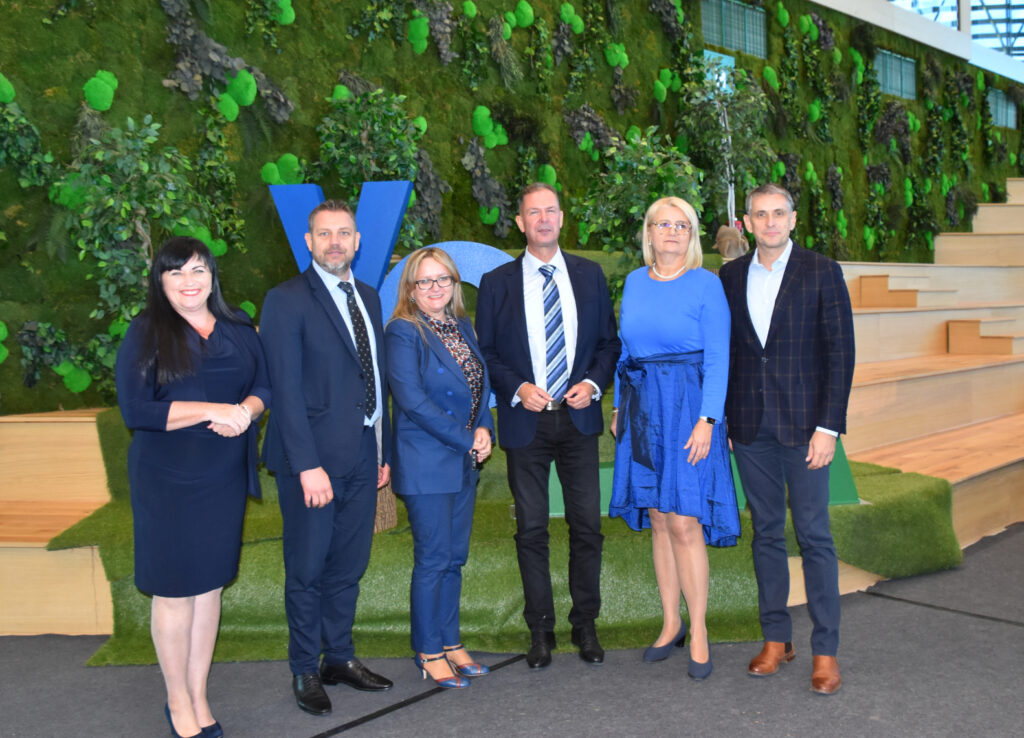
Marinko Pleština underscored that Jamnica is marking 195 years since the inaugural water analysis conducted during the Austro-Hungarian era. It is a well-known fact that the highest-quality water originates from underground sources, and he proudly highlighted that today, Jana is sourced from underground springs, specifically from one of the rare artesian wells at a depth of 800 meters. The water is directly filled into bottles, making the initial contact with the world for Jana when the bottle is opened. Jamnica collectively fills 400 million litres of water and non-alcoholic beverages annually. Notably, Jamnica in a glass bottle remains the best-selling product, and this will continue to be their focus as sellers in the upcoming period.
“It’s more than just water in a bottle; it’s also a commitment to water, especially considering the substantial investments made in the development of the plant at the source. Water is sustenance, water is life, as emphasized by FAO. Similarly, our production, encompassing both Jamnica and Jana, represents life not only for those of us working in this company but also for the rural areas where our sources are located. It’s equally vital for citizens who have this product in packaging at their disposal whenever they need it. In times of crisis when public water is unavailable, packaged water serves as a lifeline. Water in packaging is invaluable,” concluded Pleština.
Awarded ‘Communicator of the Year’
The national commemoration of World Food Day provided an occasion for the ceremonial bestowal of the ‘Communicator of the Year’ accolade. This honour, presented for the first time by the Croatian Society of Agricultural Journalists (DANH) as part of the Day of the Faculty of Agrobiotechnical Sciences Osijek (FAZOS) celebration, recognizes eminent members of the scientific community for their noteworthy contributions to knowledge dissemination and the popularization of science within the agricultural profession.
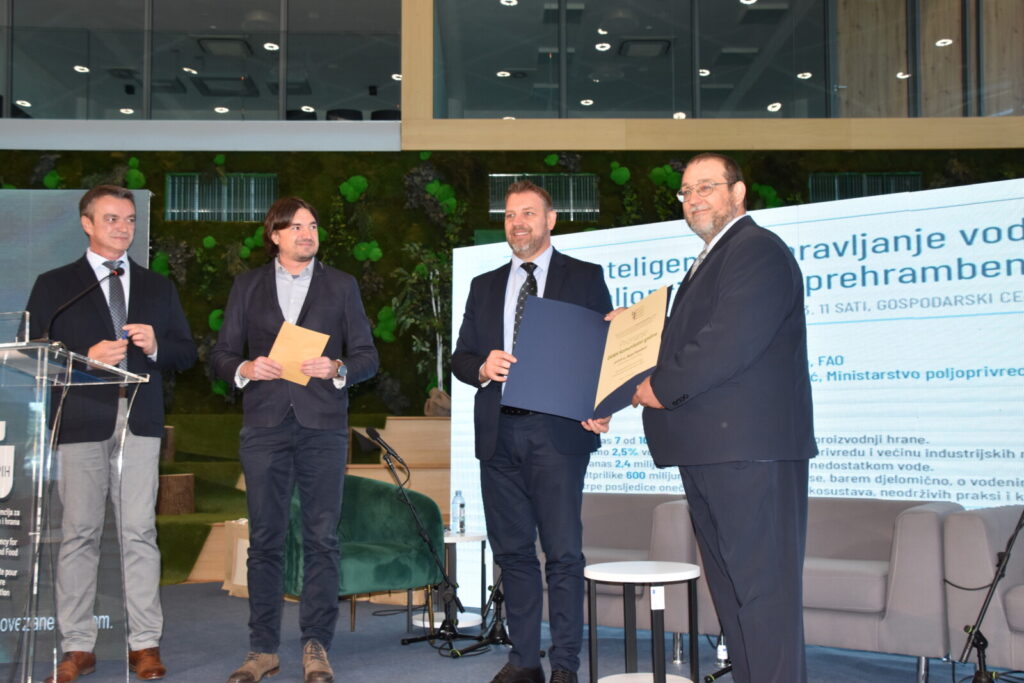
“We consider it important to highlight his accessibility to media inquiries, and also to underscore that his communication style, which resonates with local farmers, yields tangible results in terms of knowledge dissemination. We view his efforts and interaction with farmers during these challenging times as a positive exemplar of bridging theory and practice, undoubtedly contributing to the popularization of agronomic science and fostering unity within the sector,” stated Vedran Stapić, president of DANH, while announcing this year’s inaugural laureate, Prof. Dr Bojan Stipešević from the Institute of Plant Production and Biotechnology of FAZOS. The plaque was ceremoniously presented to him by Dean Krunoslav Zmaić.
“I make an effort to promptly share everything I observe and know with our producers because, without swift knowledge transfer, we are at risk of facing emigration from the prospective desert of Europe. To avert this, let’s cherish our soil, keep it vibrant, allow water to penetrate and not merely escape from the soil. Let’s ensure our fields remain as moist as possible for the collective future,” concluded Prof. Dr Stipešević, echoing the theme of World Food Day.




